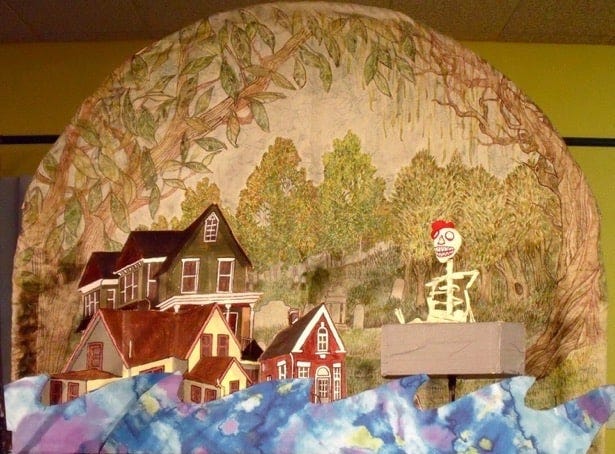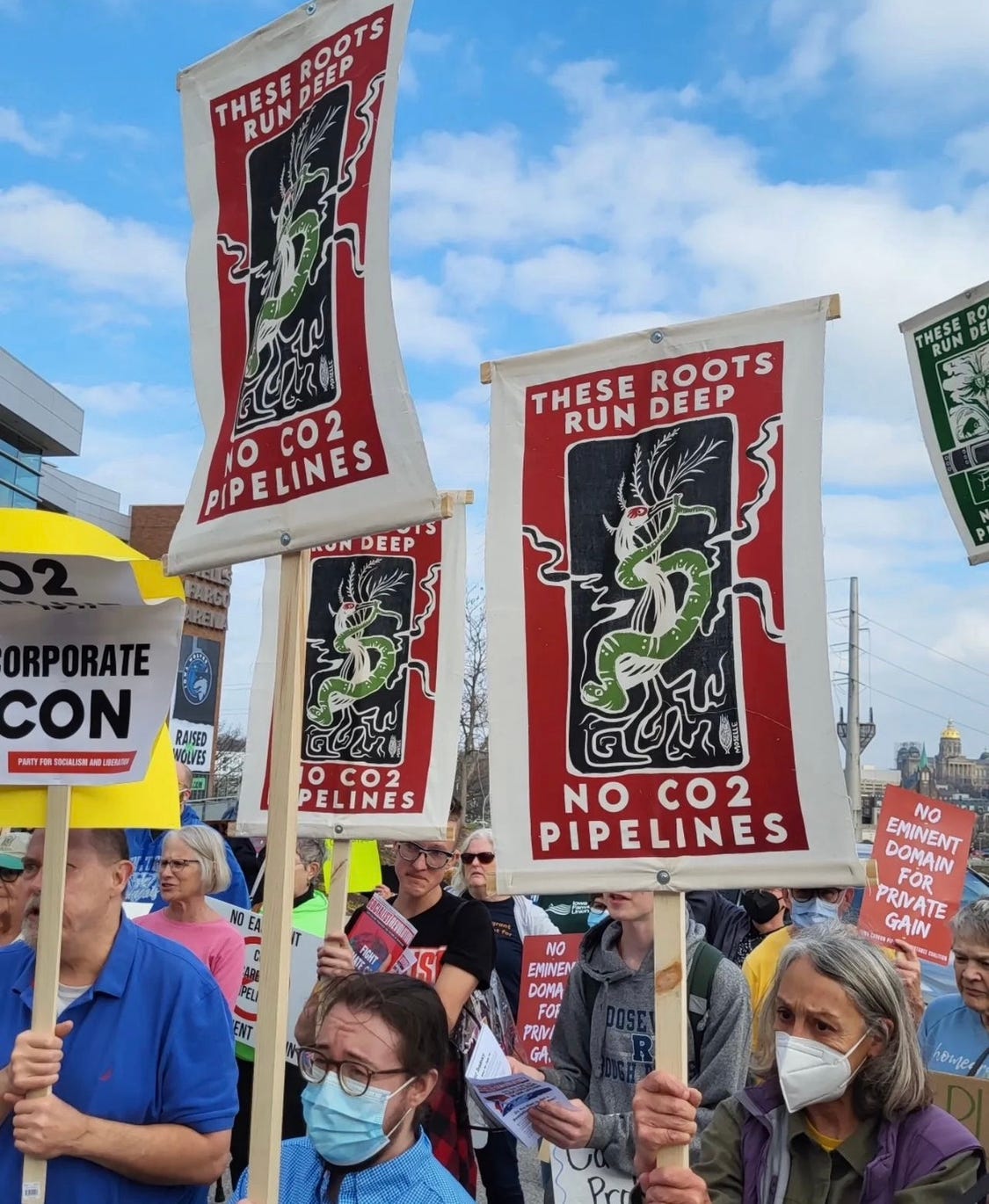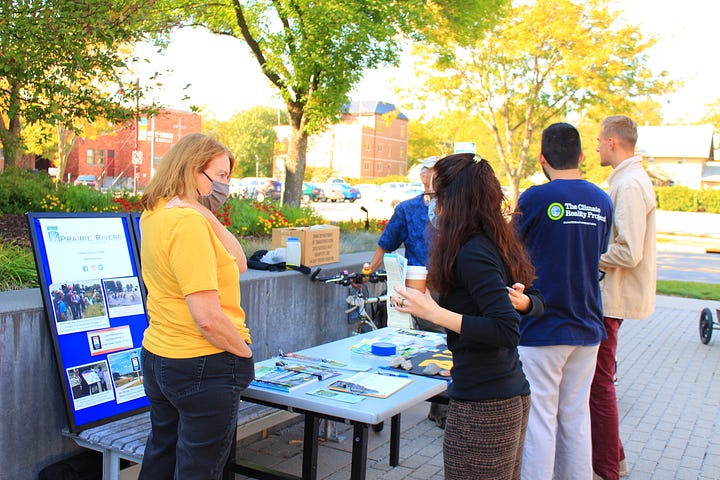
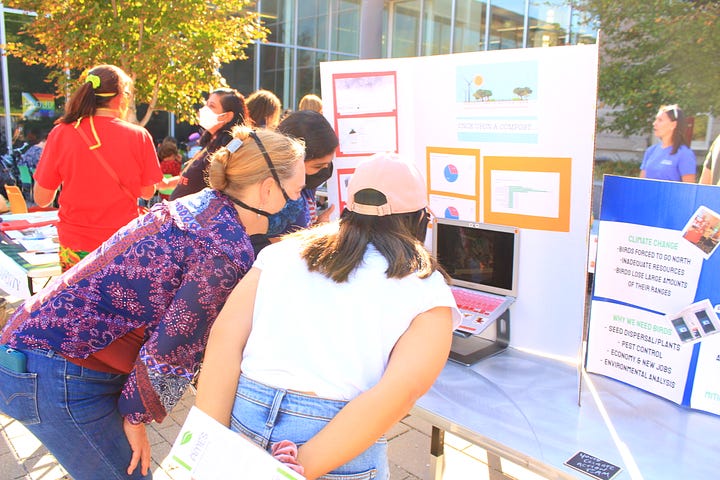
It’s early October 2021, the sun is shining, and more than a hundred people gather outside the public library in Ames, Iowa. Nonprofits, student groups, and grassroots organizations stand behind tables displaying climate advocacy work. A miniature corn crib – covered in community writings and drawings about climate action – invites people to add their own messages.
A giant puppet made of plastic bags towers over passersby. And a small team of performers shares stories, written by local and international playwrights, about how climate change affects us here and now. This same scene takes place on the Iowa State University campus, at local middle and high schools, at the Ames Farmers Market (three different Saturdays!), and at Franklin Park.
This performance is the contribution of ISU Theatre and The EcoTheatre Lab to the international Climate Change Theatre Action initiative, a biennial global event. “Crib in Crisis Encounter,” the corn crib sculpture, and “Disposed,” the plastic puppet monster, were two of eight artworks created for The EcoTheatre Lab’s 2021-22 project, The Art of Climate Planning.

My EcoTheatre Lab colleagues and I launched these projects in cooperation with community partners, and with the hope of raising awareness about urban climate action planning.
Our goal was to strategically use arts and storytelling techniques to facilitate conversations about climate change, conversations that aren’t frequent enough, even amidst the climate chaos that has surrounded us for decades. What we found during the course of these projects was both disappointing and hopeful. Disappointing, because many community members told us they’d heard nothing about Ames’ climate action plan. And hopeful, because many community members did stop, watch the performances, view the artwork, and walk away knowing that a climate action planning process was underway and that they could contribute.
This was our third contribution to Climate Change Theatre Action. In 2017, a woman and her children came upon our group of performers outside of Ames Public Library. We had just finished some not-too-discreet warm-up exercises right by the front door. She asked what we were doing.
“We’re about to start our performance of Climate Change Theatre Action,” a performer responded.
“Oh, I don’t believe in climate change,” the woman said.
My heart sank. How can we still be denying climate change, I thought. And then I said, “Well, it’s a free performance, it’s entertaining, and you are welcome to join! You can leave whenever you want.”
The woman sat in the front row for the entire performance.
In 2019, we performed Trés Marias: Categories and Luz by Shy Richardson and Karina Yager, a piece about Hurricane Maria. Rehearsals not only gave us space to share Richardson and Yager’s story, but also for the performers, including two students from Puerto Rico, to share their families’ stories. Stories of living in the age of climate chaos. Stories that we need to talk about, honor, and remember.
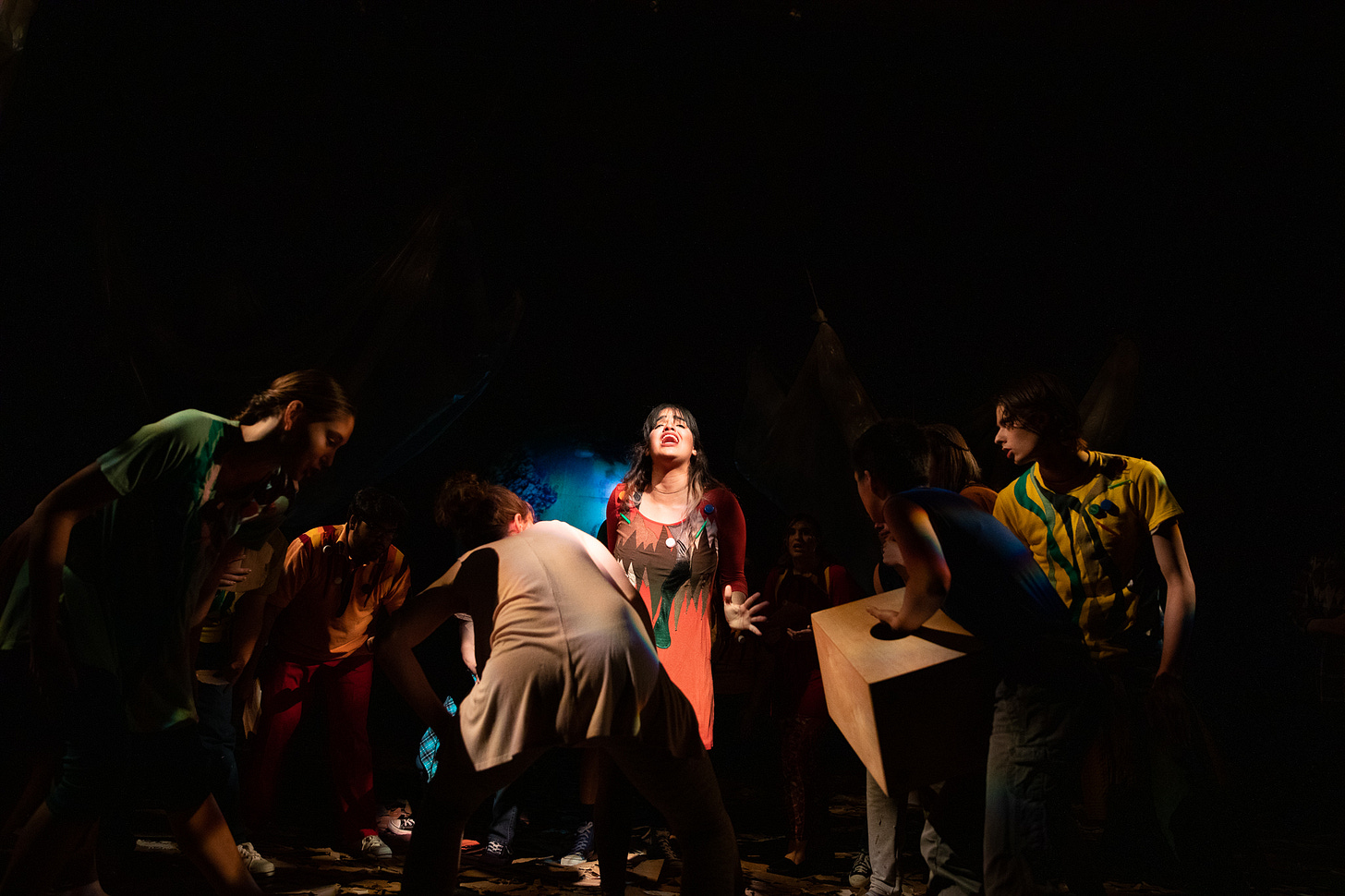
I joined the Sustainable Agriculture program at ISU because I realized that, if I was going to talk about climate change in Ames, Iowa, agriculture had to be part of that conversation. And, growing up in Arizona, I didn’t have enough context about Midwestern agriculture’s history, present, and future.
I was exploring how arts and storytelling could facilitate climate dialogue, and I knew there must be more people doing this work in Iowa. I wanted to talk to them, learn from them, and amplify their work. This led me to my thesis, The Art of Climate Dialogue: Stories from Iowa, a podcast series* featuring interviews with fifteen artists, farmers, community-engaged researchers, community organizers, and activists who have strategically applied arts and storytelling techniques to their own climate action.
So far, I have completed six interviews and have seven more on the horizon. I’ve talked with Mary Swander about AgArts and listened to her read an excerpt of The Girls on the Roof, a narrative poem that takes place during the 1993 Midwestern floods. Mary described her book as a climate parable, a story that teaches us a lesson about climate change, but through an intimate, romantic tale of a small community and family secrets.
Moselle Singh and I talked long past our allotted interview hour about truth-telling and people’s relationships with each other and the land. We talked about how critical this is to climate action, and how art may be a pathway to help repair these relationships.
I sat in Ruth Rabinowitz’ living room, looking out on her farm, which – as a photographer and ceramicist by training – she described as an artistic installation and the biggest thing she’s ever done in her life.
Linda Shenk, Jean Eells, and Stephanie Enloe described how, in an initiative through the Women, Food and Agriculture Network, they use micro-storytelling to offer women landowners agency in conversations about soil, climate, and land stewardship.
Omar de Kok-Mercado showed me his striking, drone-captured photography and videography of prairie strips, emphasizing how art can help us envision a climate future that is healthy and desirable.
And I listened to Hiphop artist and youth educator, DK (DeAn Kelly), describe how our personal health, the health of our relationships, and the health of our environment are all inextricably connected.
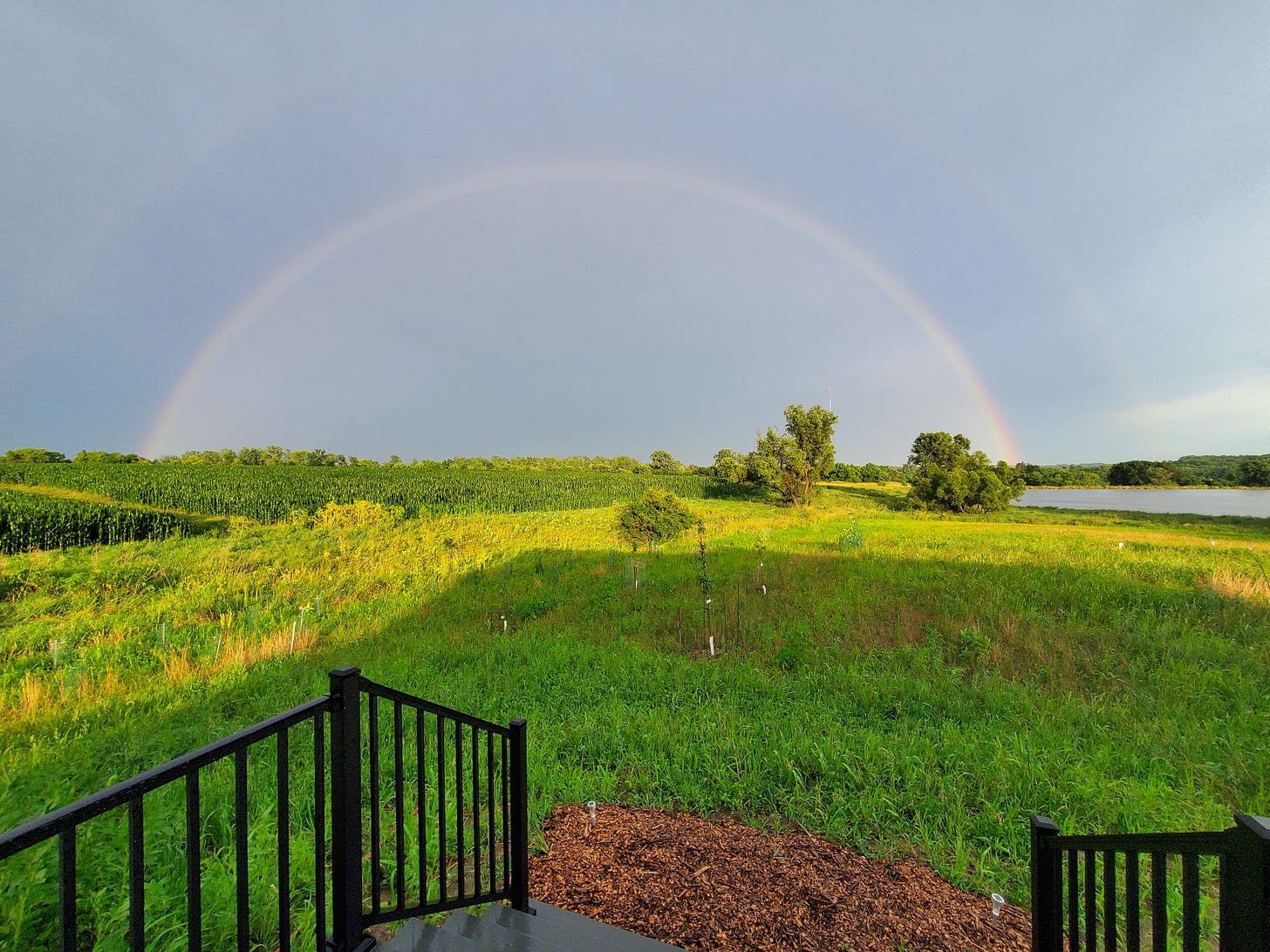
In the coming weeks, I will have the opportunity to talk with Lance Foster, Shelley Buffalo, Angie Carter, Alice McGary, Sikowis Nobiss, Cornelia F. Mutel, and Tamara Marcus. The podcast interviewees come from different disciplines (artistic and otherwise) and offer unique perspectives. But like The EcoTheatre Lab, they have all discovered the power and necessity of art and storytelling in healing our relationships with each other and all the life around us.
*The Art of Climate Dialogue, to be released in April 2023, is funded by an NCR-SARE (North Central Region Sustainable Agriculture Research and Education) Program Graduate Student Grant and a Johnson Center for Land Stewardship Policy Emerging Leader Award. Visit the website of the EcoTheatre Lab for podcast updates.
Vivian M. Cook (she/her) serves as Community Engagement Director for The EcoTheatre Lab, Co-Producer for Focal Theatre Lab, and member of the Ames Climate Action Team. With a B.A. in Performing Arts and French and an M.S. in Community Development, she is now finishing her graduate studies in Sustainable Agriculture and Youth Program Management at Iowa State University.
Please support the members of the Iowa Writers Collaborative:



